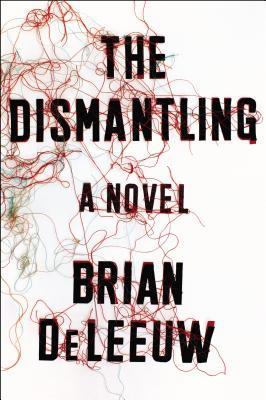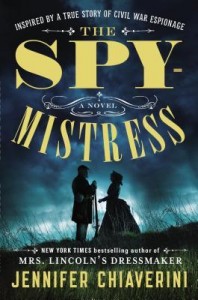 Format read: ebook provided by the publisher via NetGalley
Format read: ebook provided by the publisher via NetGalleyFormats available: paperback, ebook, audiobook
Genre: thriller
Length: 288 pages
Publisher: Plume
Date Released: April 28, 2015
Purchasing Info: Author’s Website, Publisher’s Website, Goodreads, Amazon, Barnes & Noble, Kobo, Book Depository
Brian DeLeeuw hits that sweet spot between literary and commercial suspense with his brilliantly adept, ingeniously plotted novel—a chilling, fast-paced drama that urges readers to question the meaning of atonement and whether revenge might sometimes be the only way we can liberate ourselves from our past.
Twenty-five-year-old med school dropout Simon Worth is an organ broker, buying kidneys and livers from cash-strapped donors and selling them to recipients whose time on the waitlist is running out. When a seemingly straightforward liver transplant has an unexpectedly dangerous outcome, Simon finds himself on the run. In order to survive, he must put aside his better moral judgment and place his trust in a stranger who has a shocking secret.
My Review:
There are a lot of things that get dismantled in this suspense thriller. A career, a life or two, a criminal enterprise and a cadaver.
It all starts with the cadaver. Medical school dropout Simon Worth dropped out over that cadaver. As he and his study group dissected the anonymous donor, he kept seeing the face of his dead sister in place of the corpse. He couldn’t take the nightmares, and he ran away.
That he still feels responsible for his sister’s death (he isn’t, not really) is what makes his nightmares so peculiarly devastating. Not that his next choice is much better.
He finds himself, with the help of one of his very, very few medical school friends, in a new job where his medical knowledge, incomplete as it is, comes in very handy. Simon is the new face of Health Solutions Inc., a company that matches poor but willing organ donors with recipients who are willing to pay to get moved to the top of the transplant list.
Which is all completely illegal. But Simon is able to elide the moral issues by telling himself that everyone involved, including the highly compensated donors, knows exactly what they are getting into when they game the system.
As long as everybody in the chain of illegalities has something to lose, the delicate balance of crime stays under the radar. Of course, it can’t possibly last forever, and everyone seems to get that except poor Simon, who gets caught actually caring for the people in this chain of questionable practice.
It all falls apart when one retired football player needs a liver, and one of his friends decides to buy one for him. Not that Leonard Pellegrini really wants a new liver or a new lease on life, but his friend Howard Crewes is trying to buy himself atonement for an entirely different event. Leonard was perfectly content (happy never comes into this thing) drinking himself to death, and understands completely that his liver is just the first and most vulnerable organ to pay the price of his oblivion.
But Crewes wants absolution, Leonard’s wife and kids want him to stick around a few more years, and Peter DaSilva, the actual head of Health Solutions Inc., just gets greedy. So everyone ignores the warning signs.
The donor, Maria Campos, just wants a new life with enough money to set herself up far away from her old life. There are plenty of warning signs on her side of this particular equation, too.
Although the system is successfully gamed, it all falls apart when Lenny commits suicide, and Maria runs instead of showing up for her followup care and finds herself admitted to a hospital with obvious signs of being an off-the-books organ donor.
As the investigations coincide, all the players start trying to clean up any collateral damage, and any potential witnesses.
Simon and Maria run for their lives, still arguing over how much danger they are really in. When the entire structure completely dismantles, it is just barely possible that they might be able to start over again. If they can get past the mess that got them there.
Escape Rating B-: This is a book where I have a lot of mixed feelings. For some reason, I found it difficult to care a lot about Simon or even Maria. Simon just seems to be an emotional mess who has gotten himself in way over his head. It’s not that what happened with his sister isn’t terribly sad, it’s that Simon is so good at suppressing his own emotional reactions to everything that I didn’t get enough of a feel for him to, well, feel for him.
On that other hand, the case that brings down the whole house of cards did connect to a lot of my feel buttons, probably because it was so real. Although it isn’t named specifically, Leonard Pellegrini and a lot of the other ex-football players who are in the support group he doesn’t want to be a part of are suffering from Chronic Traumatic Encephalopathy (CTE) which is very, very real.
(Without spoiling it completely, Leonard’s ultimate fate mirrors the real-life case of Dave Duerson, a member of the 1985 Chicago Bears Super Bowl Championship Team. Which explains why I remembered the case.)
(It is also possible that the on field hit that is responsible for Crewes’ guilt, which gets all of them into this mess, is intended to represent the case of Darryl Stingley, who was paralyzed in an helmet to helmet hit during an exhibition game between the Oakland Raiders and the New England Patriots.)
Leonard is suffering from CTE, and he’s been drinking in order to make the pain, and the headaches, mood swings and general depression, stop. He doesn’t want to go on living. But he also isn’t willing to fight all the people around him who want him to. There are plenty of warning signs, but Health Solutions Inc. is greedy and his family is desperate. It is a recipe for disaster on every side.
For me, the football tie-in gave me a lot more feels, and a lot more sympathy, for the reasons why everyone got themselves into this mess than anything to do with Simon or the donor Maria. The football references gave the story a real-life grounding that Simon and Maria’s story did not.
However, the football connection made the rest of the story all too plausible. Whether one agrees or disagrees with the concept of organ brokering, it is all too easy to believe that some variation of this is probably happening.
And that does give me the chills.
~~~~~~ GIVEAWAY~~~~~~



 In history, she’s the one we think of first when we hear the name Josephine. Her full name was Marie Josephe Rose Tascher de La Pagerie de Beauharnais. History refers to her as the Empress Josephine, wife of Napoleon Bonaparte.
In history, she’s the one we think of first when we hear the name Josephine. Her full name was Marie Josephe Rose Tascher de La Pagerie de Beauharnais. History refers to her as the Empress Josephine, wife of Napoleon Bonaparte.
